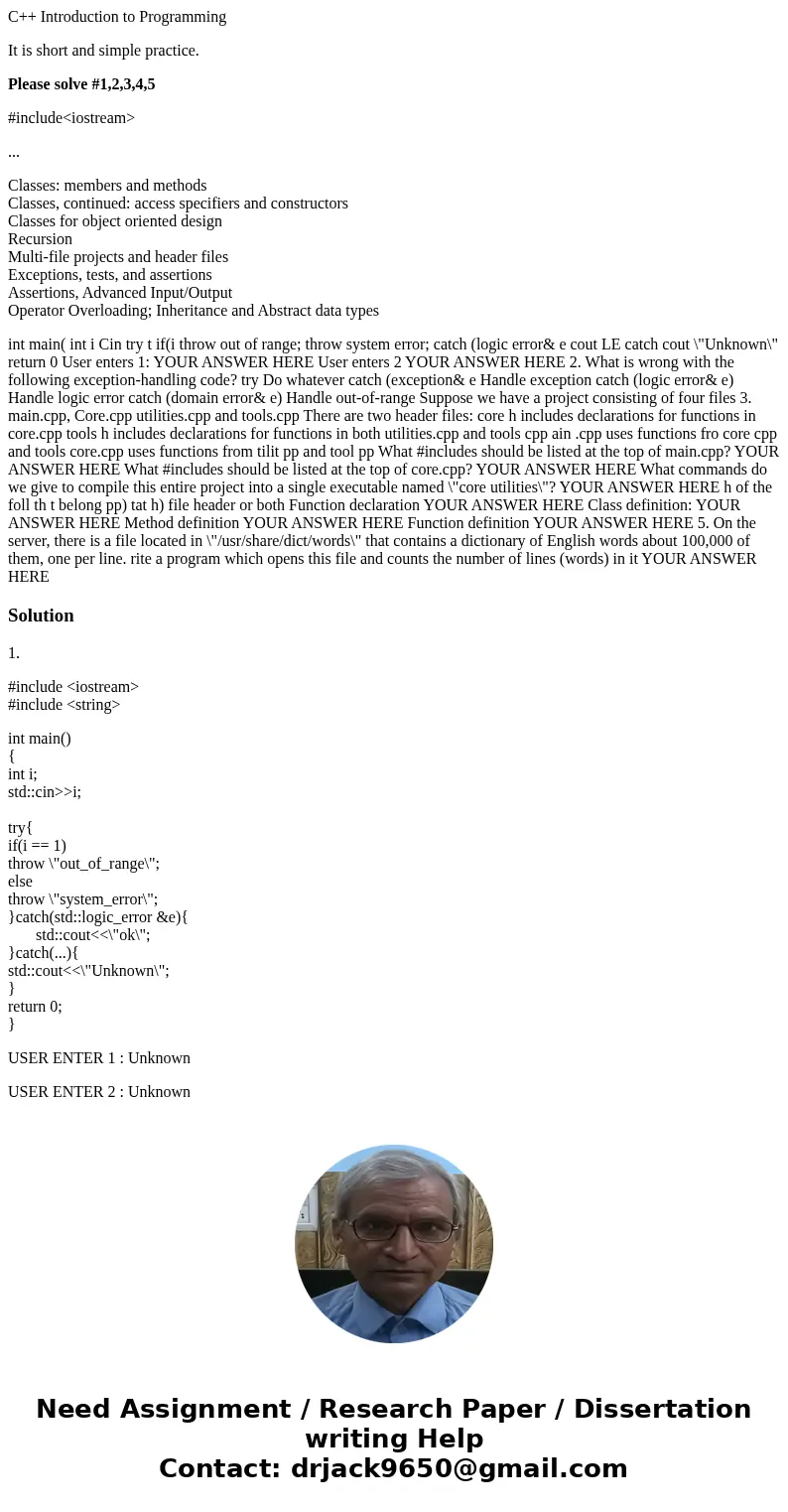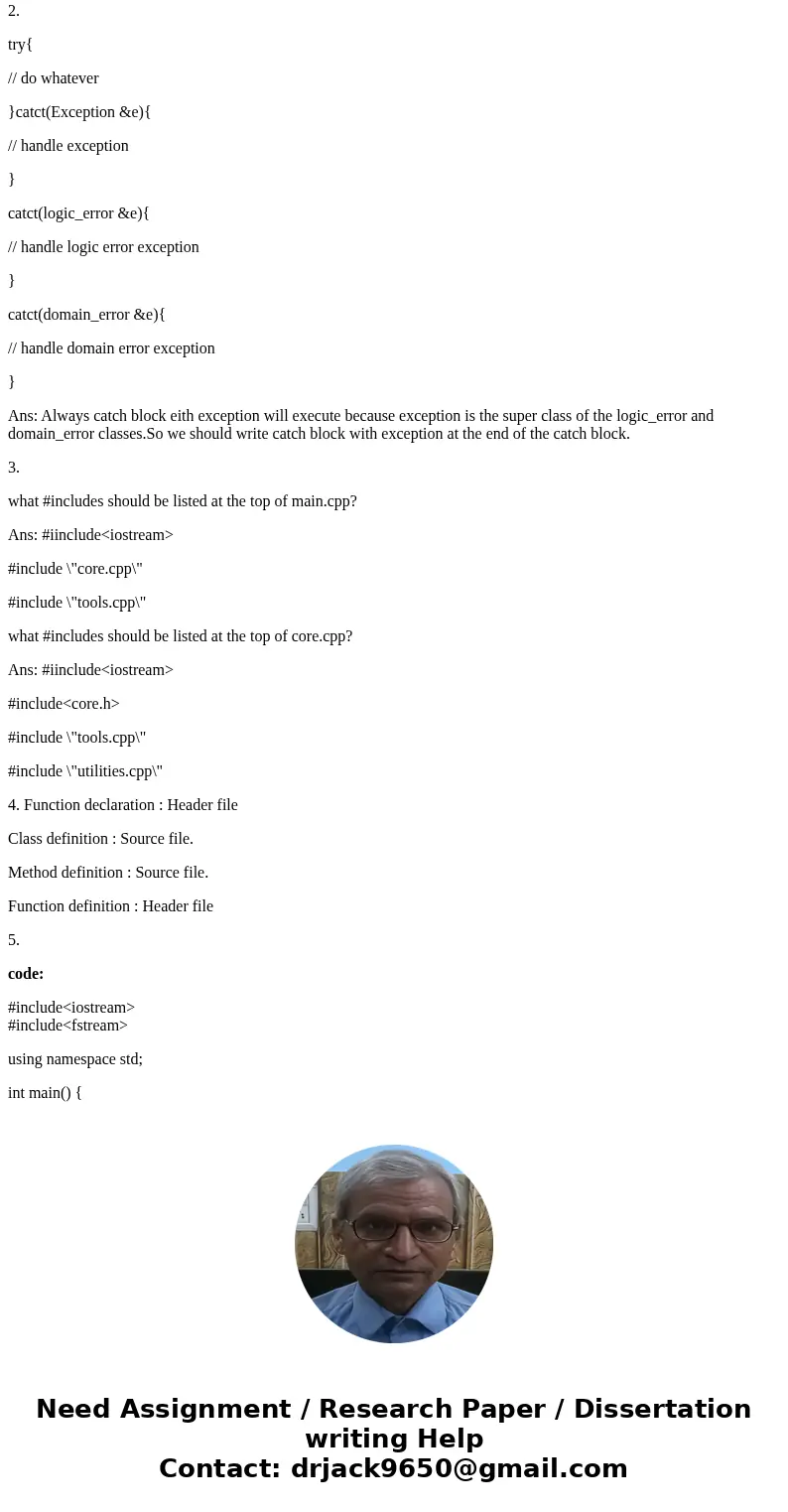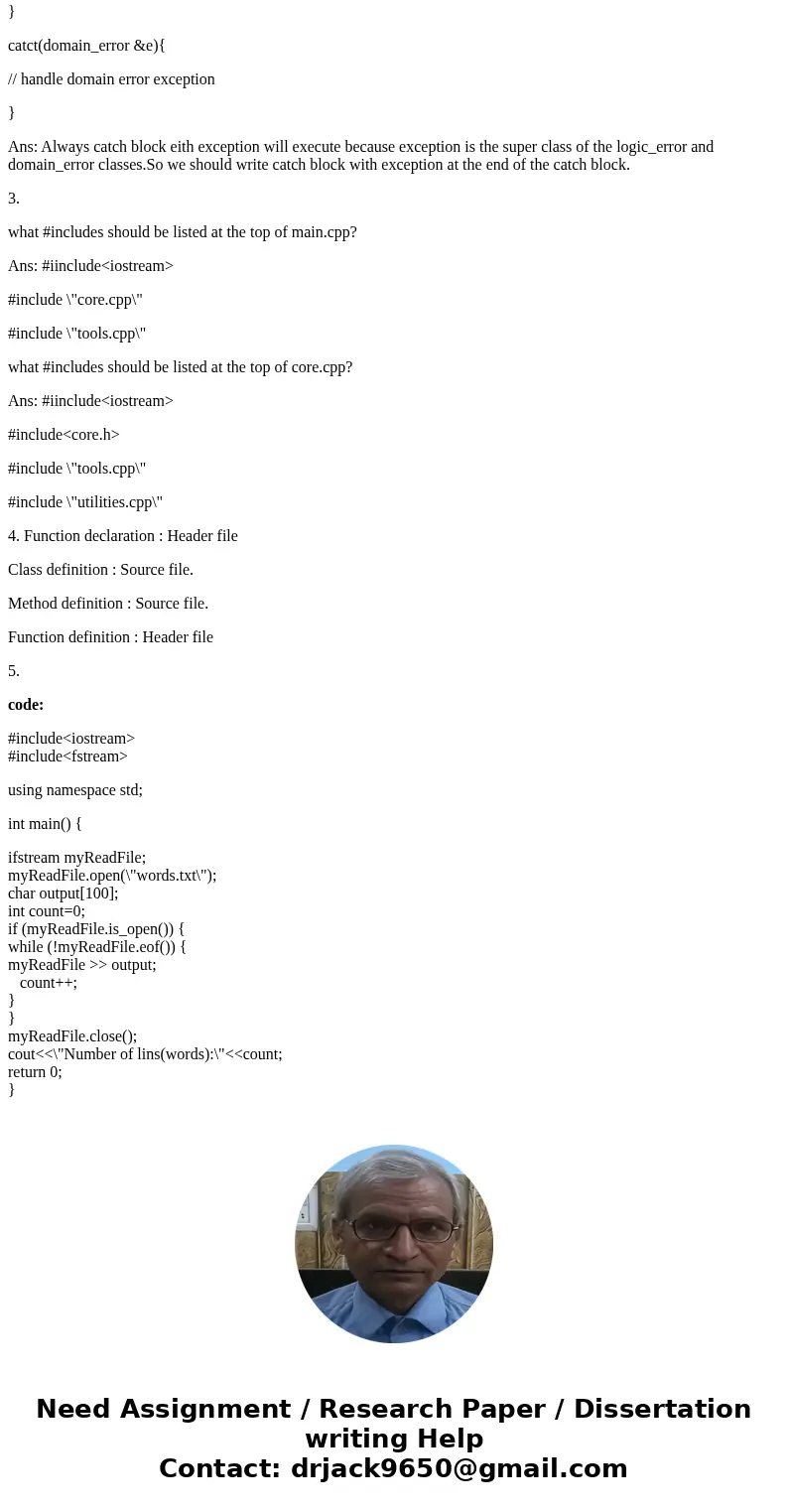C Introduction to Programming It is short and simple practic
C++ Introduction to Programming
It is short and simple practice.
Please solve #1,2,3,4,5
#include<iostream>
...
Classes: members and methods
Classes, continued: access specifiers and constructors
Classes for object oriented design
Recursion
Multi-file projects and header files
Exceptions, tests, and assertions
Assertions, Advanced Input/Output
Operator Overloading; Inheritance and Abstract data types
Solution
1.
#include <iostream>
#include <string>
int main()
{
int i;
std::cin>>i;
try{
if(i == 1)
throw \"out_of_range\";
else
throw \"system_error\";
}catch(std::logic_error &e){
std::cout<<\"ok\";
}catch(...){
std::cout<<\"Unknown\";
}
return 0;
}
USER ENTER 1 : Unknown
USER ENTER 2 : Unknown
2.
try{
// do whatever
}catct(Exception &e){
// handle exception
}
catct(logic_error &e){
// handle logic error exception
}
catct(domain_error &e){
// handle domain error exception
}
Ans: Always catch block eith exception will execute because exception is the super class of the logic_error and domain_error classes.So we should write catch block with exception at the end of the catch block.
3.
what #includes should be listed at the top of main.cpp?
Ans: #iinclude<iostream>
#include \"core.cpp\"
#include \"tools.cpp\"
what #includes should be listed at the top of core.cpp?
Ans: #iinclude<iostream>
#include<core.h>
#include \"tools.cpp\"
#include \"utilities.cpp\"
4. Function declaration : Header file
Class definition : Source file.
Method definition : Source file.
Function definition : Header file
5.
code:
#include<iostream>
#include<fstream>
using namespace std;
int main() {
ifstream myReadFile;
myReadFile.open(\"words.txt\");
char output[100];
int count=0;
if (myReadFile.is_open()) {
while (!myReadFile.eof()) {
myReadFile >> output;
count++;
}
}
myReadFile.close();
cout<<\"Number of lins(words):\"<<count;
return 0;
}



 Homework Sourse
Homework Sourse